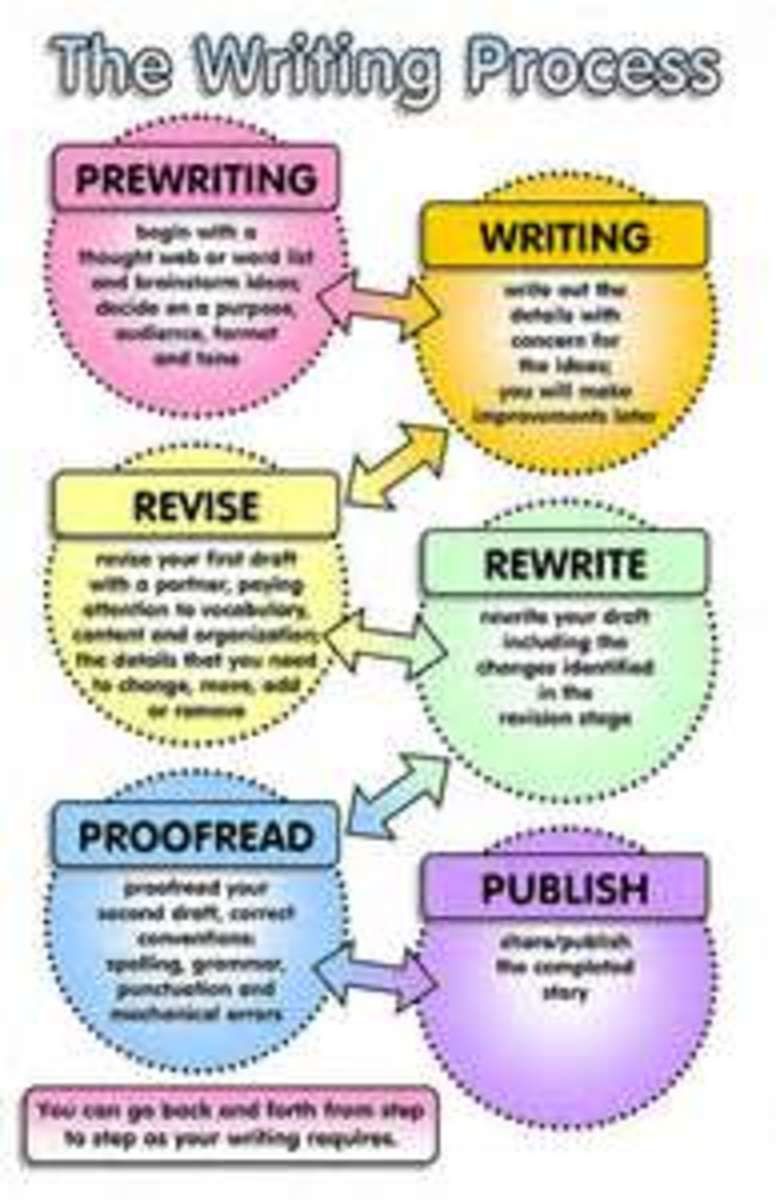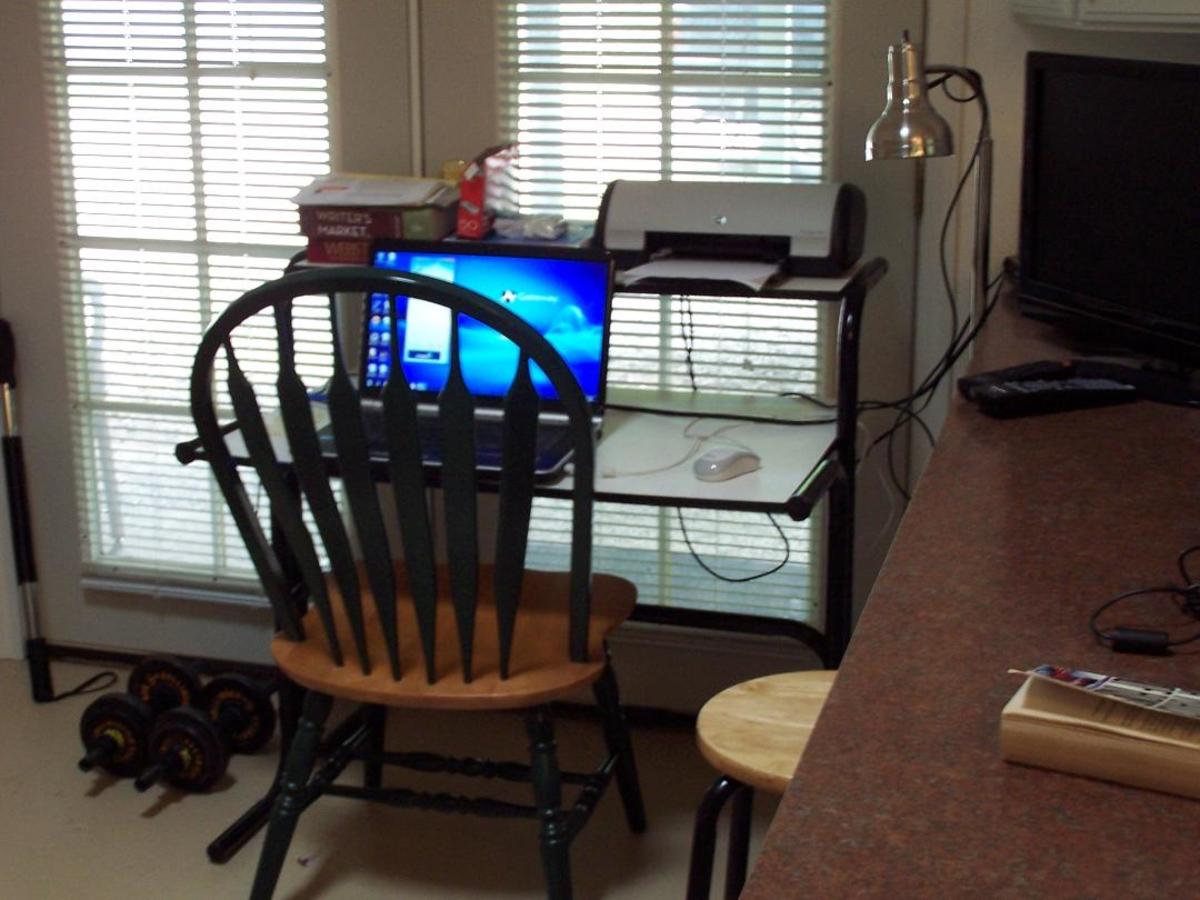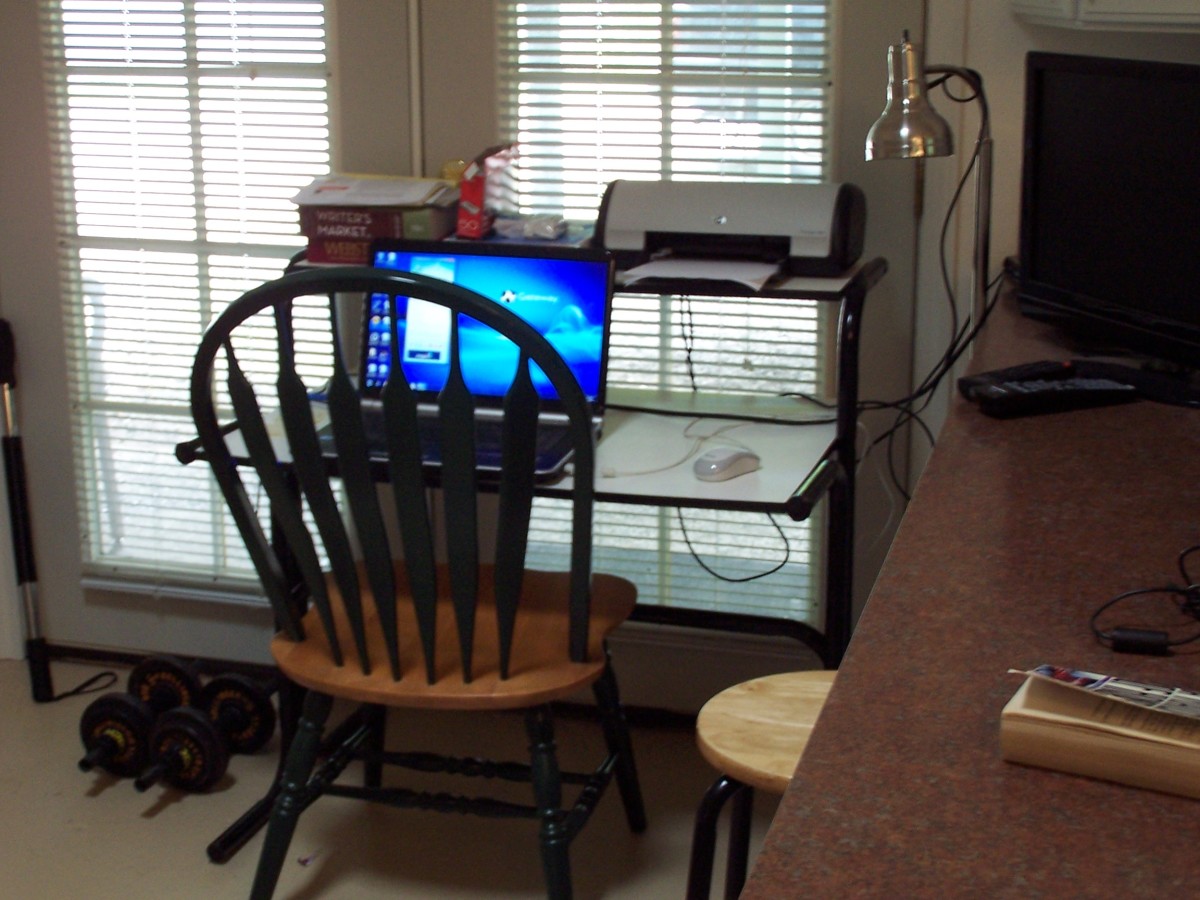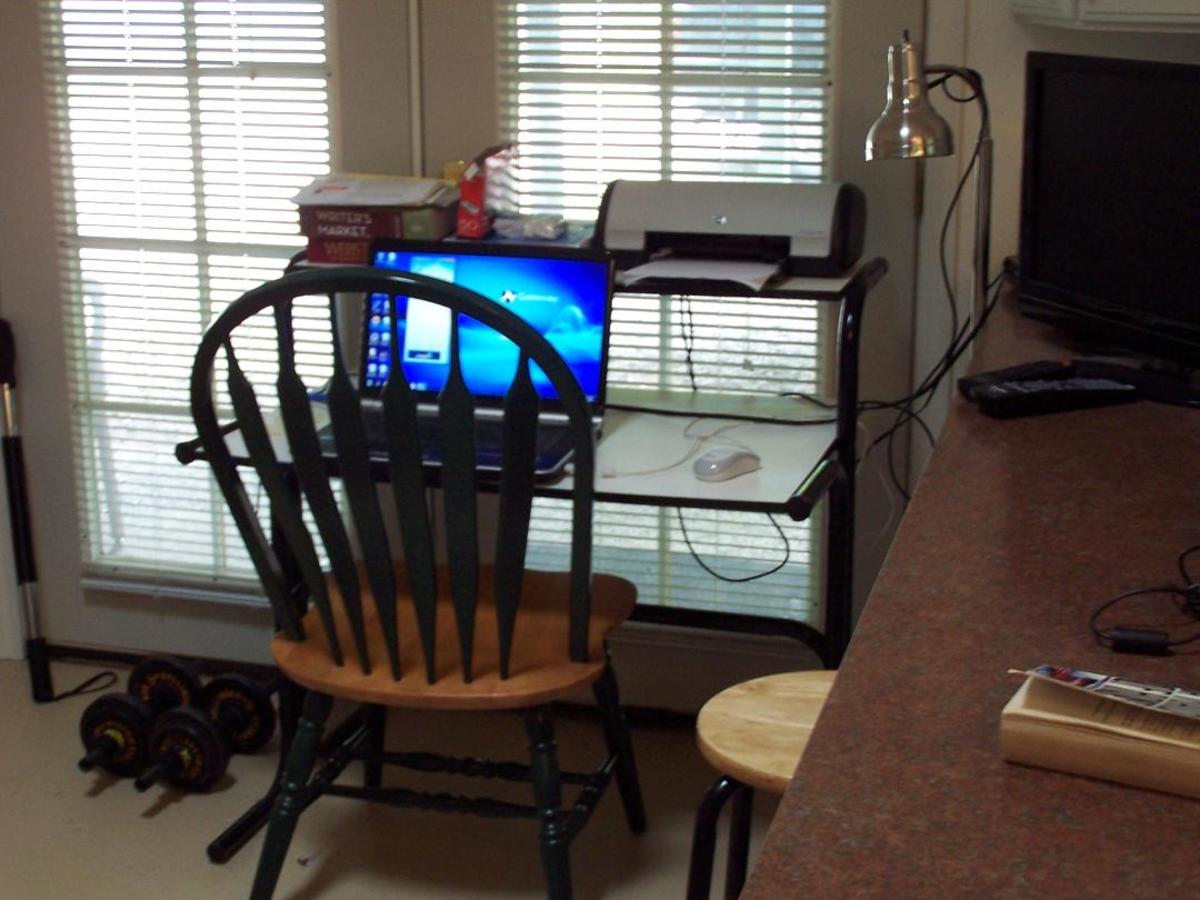Writing Tips: How to Have a Productive Workshop

Workshops and Editors are Necessary to Grow as a Writer
Everyone who writes—especially those who intend to sell and make a living at writing—need to workshop their work or, at the very least, have other eyeballs look at their work. Eyeballs who have an interest only in your writing and have no emotional or personal attachment to it. No matter how much you proofread, rewrite and edit, you’re going to miss something. Whether what you miss is a typo, a grammatical error or clarity within the piece, it still affects your credibility as a writer.
And, let's face it. Even good writer's are guilty sometimes of bad writing. but bad writing is not hopeless writing (unless your name is Stephanie Meyer).
I cannot tell you how many times I have edited and reedited a piece and published it, only later to find a huge grammar error, spelling error or typo. It happens to everyone and everyone, from the novice to the expert, needs critical feedback. Odds, are, after I publish this, I will find items that need to be clarified or edited (I’m the king of typos).
There’s a several ways to go about this, and I offer the same advice for dealing with them regardless. You could join a writing group or class at school (almost all community colleges offer writing courses for credit and noncredit) and participate in a workshop or you could hire a professional editor. I’m going to focus on using a workshop, since that is what most of us have easiest access too. While it can be very scary to submit your work to someone else for their advice and critique, it’s also necessary. Here’s some advice for surviving these critiques.
1. Put your Ego aside. It's not about you! You're not being critiqued, your work is.
While I never condone submitting work anonymously (that’s the coward’s way), you need to remember that a work shop has a moderator and, while the moderator’s primary job is to keep the workshop focused, it is also their job to ensure that the writing is treated as separate from the writer. If someone were to say “I think you were lazy with your rhyme scheme,” that would be a personal attack. The proper way to say this, without making it personal would be to say “I think some of the rhyme schemes are lazy and the poem would be improved if this and this and this were changed.” Concrete examples help and are more constructive then blanket statements.
More than this, good writing is good writing but, tastes are subjective. I do not like the poetry, or any writing really, of William Shakespeare. I find his work to be trite and overly dramatic. But, I recognize that William Shakespeare is a good writer and I do not dislike him personally—I obviously never met the man—I just don’t care for his body of work.
In a workshop, the goal is to show writer’s how their work may be improved; to show them what works, what doesn’t and why, to increase clarity, to offer helpful suggestions. Your work is being critiqued, not you. Take notes and have an open mind. If you’re not willing to fix, change, delete or add things in a classroom setting, you will never be able to work with an editor.
Also remember, if the majority of the group is confused by something or doesn’t like something in the piece and your intention is for people to understand it and enjoy it, you should probably change it. More than that, the life of a professional writer is a life of rejection and constant critique.

2. Don’t speak until your critique is over
Most workshops have a time limit for each piece being critiqued. This time can range from 10 minutes to several hours. If, upon reading your manuscript prior to critique (as you should) you notice a significant spelling error or typo, you may address it before the critique begins. But during the critique, KEEP YOUR MOUTH SHUT! Take notes and save your comments/questions for the end. If someone says something that you don’t understand, write it down and ask for clarification at the end, but, moreover don’t defend your work. It’s your work and ultimatrely, you make the decisions on how it’s presented. Be proud of it, but not hard headed and stubborn about changing it. Anyone who follows my work knows that I often post work and then post drastically different revisions later on, after work shopping and revising. If you don’t like someone’s advice, don’t take it. Defending your work or contradicting advice you’ve been given during the workshop is not only a waste of time, it can lead to a muddied discourse during future critiques. People need to have a free flow of ideas where they can safely speak their mind. It is okay for critiquers to argue with critiquers—and even beneficial—but, for the writer to get involved is counterproductive.
3. Own your words
Remember, if you are being critiqued, you will also get your chance to critique. Most times, a physical copy of the writing is distributed for the members of the workshop to read and comment on, prior to the workshop. Don’t write something on the hard copy that you would not say during a workshop, especially if it’s nasty and/or unconstructive.
As an example, I was in a workshop and there was a particular young lady who would not say a word during the workshops—she wouldn’t even read her own work aloud before the workshop—but, when I would get my paper back from her, it would have the most trite and hurtful comments on them. One such critique simply had the words “You're writing is so boring.” On another work, “I feel like you’re trying to sound too much like a poet and I don’t like it.” Now, I’m a big boy and I understand that people have different tastes in work and I understand that work often needs to be revised so, I’m fine with that. But, she offered no advice. She didn’t tell me what would make the work more enjoyable for her. But, what offended me was that she made the critiques personal attacks on me and offered no feedback during the workshops. I cannot accept or respect someone’s personal critiques (attacks, in this case) if they’re not willing to say them out loud to my face. It’s cowardly and unproductive. Don’t be like this!
Closing Thought
I wish you all the best in you’re writing and hope you found this helpful. Also, as a shameless plug, I do offer critiques and edits. Hubbers get 10% off. My contact information is in my profile.
Thanks for Reading.
PDXKaraokeGuy, also known as Justin W. Price, is the managing editor at efiction horror. Husband to andrea, father to two dogs. writer.poet.baseball fan. tattooed. He is am amateur theologian with a rabid sweet tooth.He resides in a suburb of Portland, Oregon.He has a poetry book available for Amazon Kindle, and also writes on Wizzley and His blog, FirstBlog. Please visit his profile page for more information. Thanks!
More Writing Tips
- Writing Poetry Tips, Part one: What Can I say?
a lot of novice poets try to use fancy and cultured language. Don't! - Writing Poetry Tips, Part Two: Write it, Own it
Another article with writing tips. This one says, essentially, "Don't be anonymous" - Writing Poetry Tips, Part Three: The Found Poem and the Enjambed Line
Poetry tips. Using endstopepd and enjambed lines, using found poems to practice. - Writing Tips: How to Be Prolific
Some tips on how to become a more prolific writer











